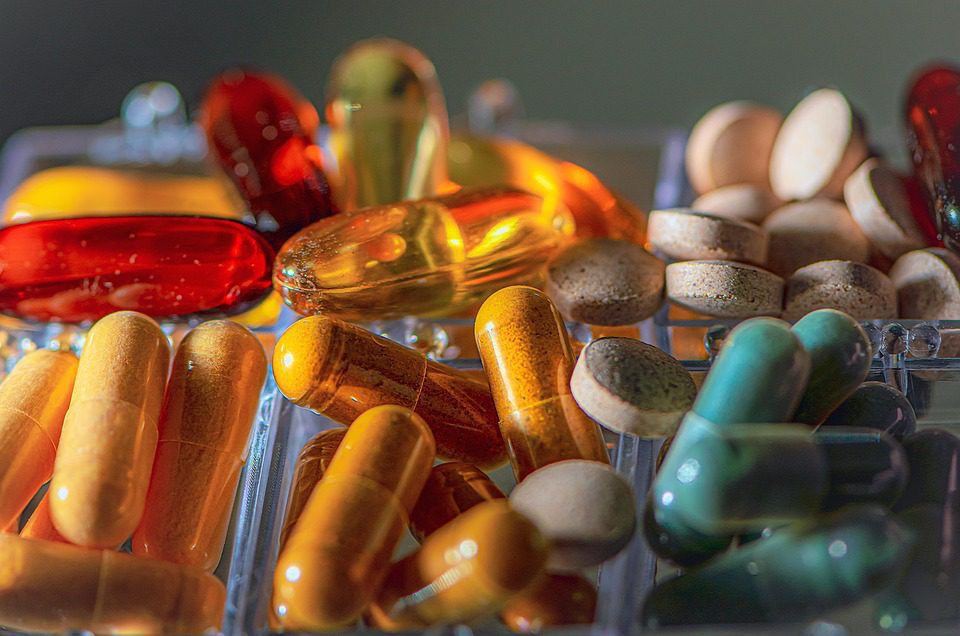Introduction
Probiotics have been gaining popularity in recent years, and for good reason. These beneficial microorganisms have been shown to have a significant impact on our overall health and wellbeing, from improving digestion to enhancing immune function. In this article, we will explore the various benefits of probiotics and how they can transform your gut health. Whether you’re looking to alleviate symptoms of irritable bowel syndrome (IBS) or simply boost your energy levels, probiotics are definitely worth considering.
What are Probiotics?
Probiotics are live microorganisms that are similar to the beneficial microorganisms found in the human body. They are available in supplement form or can be found in fermented foods such as yogurt, kefir, and sauerkraut. When taken, probiotics can help to restore the balance of gut bacteria, which is essential for maintaining a healthy digestive system.
Benefits of Probiotics
The benefits of probiotics are numerous and well-documented. Some of the most significant advantages of taking probiotics include:
-
- Improved digestion and reduced symptoms of IBS
-
- Enhanced immune function and reduced inflammation
-
- Increased energy levels and improved mood
-
- Healthier skin and reduced symptoms of acne
-
- Support for weight loss and improved metabolic function
1. Improved Digestion and Reduced Symptoms of IBS
Probiotics have been shown to have a significant impact on digestive health. By restoring the balance of gut bacteria, probiotics can help to alleviate symptoms of IBS, such as bloating, abdominal pain, and changes in bowel movements. Studies have shown that probiotics can reduce symptoms of IBS by up to 50%.
How Probiotics Improve Digestion
Probiotics work by colonizing the gut with beneficial microorganisms, which helps to crowd out harmful bacteria and restore the balance of the gut microbiome. This can lead to improved digestion, reduced inflammation, and a reduction in symptoms of IBS.
2. Enhanced Immune Function and Reduced Inflammation
Probiotics have also been shown to have a significant impact on immune function. By restoring the balance of gut bacteria, probiotics can help to boost the immune system and reduce inflammation. This can lead to a reduction in symptoms of autoimmune diseases, such as rheumatoid arthritis and lupus.
How Probiotics Enhance Immune Function
Probiotics work by stimulating the immune system and increasing the production of antibodies. This can help to protect against infections and reduce inflammation, which is associated with a range of chronic diseases.
3. Increased Energy Levels and Improved Mood
Probiotics have also been shown to have a significant impact on energy levels and mood. By restoring the balance of gut bacteria, probiotics can help to increase energy levels and improve mood. This is because the gut and brain are connected through the gut-brain axis, and an imbalance of gut bacteria can lead to symptoms of anxiety and depression.
How Probiotics Improve Energy Levels and Mood
Probiotics work by increasing the production of neurotransmitters, such as serotonin and dopamine, which are associated with improved mood and energy levels. This can lead to a reduction in symptoms of anxiety and depression, and an overall improvement in wellbeing.
4. Healthier Skin and Reduced Symptoms of Acne
Probiotics have also been shown to have a significant impact on skin health. By restoring the balance of gut bacteria, probiotics can help to reduce inflammation and improve skin health. This can lead to a reduction in symptoms of acne, and an overall improvement in skin appearance.
How Probiotics Improve Skin Health
Probiotics work by reducing inflammation and improving the integrity of the skin barrier. This can lead to a reduction in symptoms of acne, and an overall improvement in skin health.
5. Support for Weight Loss and Improved Metabolic Function
Probiotics have also been shown to have a significant impact on weight loss and metabolic function. By restoring the balance of gut bacteria, probiotics can help to improve metabolic function and support weight loss. This is because an imbalance of gut bacteria can lead to changes in metabolism, which can make it harder to lose weight.
How Probiotics Support Weight Loss
Probiotics work by improving metabolic function and increasing the production of hormones that regulate appetite and satiety. This can lead to a reduction in body weight and an overall improvement in metabolic health.
6. Reduced Symptoms of Anxiety and Depression
Probiotics have also been shown to have a significant impact on mental health. By restoring the balance of gut bacteria, probiotics can help to reduce symptoms of anxiety and depression. This is because the gut and brain are connected through the gut-brain axis, and an imbalance of gut bacteria can lead to symptoms of anxiety and depression.
How Probiotics Reduce Symptoms of Anxiety and Depression
Probiotics work by increasing the production of neurotransmitters, such as serotonin and dopamine, which are associated with improved mood and reduced symptoms of anxiety and depression.
7. Improved Bone Health and Reduced Risk of Osteoporosis
Probiotics have also been shown to have a significant impact on bone health. By restoring the balance of gut bacteria, probiotics can help to improve bone density and reduce the risk of osteoporosis. This is because an imbalance of gut bacteria can lead to changes in calcium absorption, which can increase the risk of osteoporosis.
How Probiotics Improve Bone Health
Probiotics work by improving calcium absorption and increasing the production of hormones that regulate bone growth. This can lead to an improvement in bone density and a reduction in the risk of osteoporosis.
8. Reduced Risk of Chronic Diseases, Such as Heart Disease and Diabetes
Probiotics have also been shown to have a significant impact on the risk of chronic diseases, such as heart disease and diabetes. By restoring the balance of gut bacteria, probiotics can help to reduce inflammation and improve metabolic function, which can reduce the risk of these diseases.
How Probiotics Reduce the Risk of Chronic Diseases
Probiotics work by reducing inflammation and improving metabolic function. This can lead to a reduction in the risk of chronic diseases, such as heart disease and diabetes.
9. Improved Oral Health and Reduced Risk of Gum Disease
Probiotics have also been shown to have a significant impact on oral health. By restoring the balance of gut bacteria, probiotics can help to improve oral health and reduce the risk of gum disease. This is because an imbalance of gut bacteria can lead to changes in the oral microbiome, which can increase the risk of gum disease.
How Probiotics Improve Oral Health
Probiotics work by improving the balance of the oral microbiome and reducing inflammation. This can lead to an improvement in oral health and a reduction in the risk of gum disease.
10. Reduced Symptoms of Allergies and Intolerances
Probiotics have also been shown to have a significant impact on symptoms of allergies and intolerances. By restoring the balance of gut bacteria, probiotics can help to reduce inflammation and improve immune function, which can reduce the symptoms of allergies and intolerances.
How Probiotics Reduce Symptoms of Allergies and Intolerances
Probiotics work by reducing inflammation and improving immune function. This can lead to a reduction in symptoms of allergies and intolerances.
Conclusion
In conclusion, probiotics have a wide range of benefits that can transform your gut health and boost overall wellbeing. From improving digestion and reducing symptoms of IBS, to enhancing immune function and reducing inflammation, probiotics are a natural and effective way to improve your health. Whether you’re looking to alleviate symptoms of a specific condition or simply boost your energy levels, probiotics are definitely worth considering. So why not give them a try and see the difference for yourself?
If you’re interested in learning more about probiotics and how they can benefit your health, be sure to speak with a healthcare professional or registered dietitian. They can help you determine the best course of treatment and recommend a probiotic supplement or food that is right for you.
FAQs
Q: What is the best way to take probiotics?
A: The best way to take probiotics is through a combination of supplement and food sources. Probiotic supplements can provide a high dose of beneficial microorganisms, while fermented foods such as yogurt and kefir can provide a natural source of probiotics.
Q: How long does it take to see the benefits of probiotics?
A: The benefits of probiotics can be seen in as little as a few days, but it may take several weeks to notice significant improvements in symptoms.
Q: Are probiotics safe for everyone?
A: Probiotics are generally considered safe for most people, but they may not be suitable for individuals with certain medical conditions or who are taking certain medications. It’s always best to speak with a healthcare professional before starting a probiotic supplement.
Pro Tips
-
- Always choose a probiotic supplement from a reputable manufacturer that contains multiple strains of beneficial microorganisms.
-
- Start with a low dose and gradually increase as needed to minimize side effects.
-
- Combine probiotics with prebiotics, which are non-digestible fibers that help feed the beneficial microorganisms in the gut.
Mistakes to Avoid
-
- Don’t assume that all probiotic supplements are created equal. Look for a supplement that contains multiple strains of beneficial microorganisms and has been tested for potency and purity.
-
- Don’t take probiotics without speaking with a healthcare professional first, especially if you have a medical condition or are taking certain medications.
Best Practices
-
- Always follow the recommended dosage and start with a low dose to minimize side effects.
-
- Combine probiotics with a healthy diet and lifestyle to maximize benefits.
-
- Consider keeping a food and symptom diary to track the effects of probiotics on your health.





